Estate Planning for Divorcees
A divorce can be a painful and an overwhelming process, as anyone who has gone through it knows. Once the the couple made the decision to go separate ways, there are seemingly endless paperwork — separating and re-titling assets ownership, selling or refinancing the family home or relocating to a new one, access and custody issues if there are minor children, and making provision for children’s living and educational expenses. These cumbersome tasks must be completed to be able to move on with your life.
Often overlooked, but equally important, are changes that need to be made in your ESTATE PLANNING. Many couples choose to separate for a time before they officially divorce, but they may not realize that marriage separation doesn’t affect a Will like divorce does. If you neglect to update your Will upon separation and you pass away, your spouse may inherit the property designated initially to him or her in your Will. Also, if your spouse is listed as your executor in your Will, he or she will still be legally obligated to perform that role, even if you pass away while you’re separated.
In a divorce, all assets will be locked-down, meaning neither spouse can spend nor hide substantial assets, even if those are in his or her name.
When going through a divorce, you may feel a sense of urgency to remove your spouse from all your estate plan, but the law may limit your ability to do so right away. A divorcee may be legally prohibited from making certain changes to the estate plan during the divorce process and some estate planning provisions may be negotiated in the divorce agreement.
Ensure that you protect yourself, your children, and others who depend on you. If you have a complicated divorce agreement, it is especially important that you first consult an experienced divorce lawyer before taking any actions over your assets. Not doing so could mean making a costly mistake where you may violate the divorce agreement and possibly lose control over some of your property.
Experts recommended waiting until the divorce is finalized to update your estate plan.
But that doesn’t mean you should wait until then to start thinking about and preparing it.
Most people would agree that their ex-spouse is the last person they want to inherit their assets when they die — or to have that person make life and death decisions for them. But that is exactly what can happen if these documents are not updated.
After a divorce, it’s important to review and update elements of your estate plan, including your will, any trusts, power of attorney, property ownership, and beneficiary designations (nominations). The simplest thing to do is to be proactive about updating your estate planning documents so there’s no contest. Estate litigation, much like divorce litigation, is messy.
Estate planning during a divorce can be a complicated process, and there are several common mistakes to avoid:
1. Failing to update estate planning documents: One of the most common mistakes is failing to update estate planning documents after a divorce. It’s important to review and UPDATE your will, trusts, power of attorney, and beneficiary designations (nominations) to ensure that your assets are distributed according to your wishes.
2. Failing to separate your finances: As soon as possible, separate your finances from your spouse’s. This includes bank accounts, credit cards, and any other joint accounts.
3. Failing to change passwords: Update your online accounts and notify service providers that your former spouse is no longer permitted to access your records.
4. Not considering the impact of remarriage: If you plan to remarry, it’s important to consider the impact on your estate plan. You may need to update your estate planning documents to reflect your new circumstances.
5. Failing to plan for disability: Failing to plan for disability can be a costly mistake. Consider setting up a lasting power of attorney (LPA) to ensure that your assets are not frozen if you become mentally incapacitated.
6. Naming just one beneficiary or minor as beneficiary: Naming just one beneficiary can be a mistake, as it can leave your assets vulnerable if that beneficiary predeceases you. Consider naming multiple beneficiaries or contingent beneficiaries.
If you name your children as beneficiaries and they are minors when you die, a court guardianship must be established for them until they become twenty one years old—at which time they will receive the entire inheritance. At that age, they may decide to spend the inheritance on an expensive sports car and fun times instead of on their college education. The other parent (your ex-spouse) could be named by the court as the trustee to manage the funds while your children remain minors.
7. Not planning for nursing home care: Failing to plan for nursing home care can be a costly mistake. Consider setting up a trust or other estate planning tool to protect your assets and ensure that you receive the care you need.
8. Not discussing your estate plan with family and friends: Failing to discuss your estate plan with family and friends can lead to confusion and conflict after your death. Consider discussing your wishes with your trusted loved ones to ensure that everyone is on the same page.
9. Financial procrastination: Procrastinating on estate planning can be a costly mistake. It’s important to start planning as soon as possible to ensure that your assets are protected and your wishes are carried out.
10. Making children joint owners of your assets: Making children joint owners of your assets can be a mistake, as it can lead to unintended consequences and tax implications. Consider setting up a trust or other estate planning tool to ensure that your assets are preserved and distributed according to your wishes.
11. Not seeking professional help: Estate planning can be a complex process, and it’s important to seek professional help early to ensure that your assets are protected and your wishes are carried out by doing a review of all your assets to determine if any changes need to be made.
12. Failure to do a business succession planning: If you own a small business and your spouse has been involved in its operations, prepare a contingency plan for someone else to take control if you become incapacitated.
ESTATE PLANNING FACTS:
1. A WILL is revoked by marriage but not by divorce.
2. A WILL cannot be executed if the person is not dead (mentally incapacitated).
3. Beneficiaries under 21 years old cannot receive your assets directly; Gifts to minors will be managed by an adult (Court-appointed Guardian / Your-appointed Trustee).
4. Ex-spouse will be given 1st priority to be a GUARDIAN in a divorce. Under the law, the surviving parent is the natural guardian for the child. The surviving parent’s rights to guardianship cannot be taken away via a Will made by the other party, even if this parent has been given the Care and Control in the divorce settlement. Hence the testator can only appoint a joint guardian to act with the surviving parent. For example, the testator, who is the father, can appoint a joint guardian (e.g. his sister) in his Will to act with the ex-wife.
5. Unlike a WILL, a TRUST is not revoked by marriage.
Consider setting up a trust to protect your assets from unforeseen events i.e. bankruptcy, beneficiary’s ex-spouse, creditor, lock down of assets due to mental incapacity, mismanagement by guardian, or squandering by beneficiaries. A trust can help ensure that your assets are distributed according to your wishes especially if you have children whose guardian is your ex-spouse or you may consider a 2nd marriage. Keep in mind, that if your children are minors, you’ll also need to designate a trustee to manage the trust.
The guardians need not necessarily be the TRUSTEE in the Will. The role and responsibility of the trustee are quite different from those of the guardian. The role of the trustee is to distribute the estate of the deceased testator which shall include what is set aside for the children within his/ her estate, based on the intentions stated in the Will. For example, the joint guardian appointed in the Will is the sister of the father, while the trustee for the estate can be the brother of the father or a professional trustee company.
6. Naming minor children as your life insurance beneficiaries could create some unexpected complications, since they can’t actually manage those assets themselves.
Instead, consider naming a trust as the beneficiary and leaving the life insurance proceeds to the trust. That way, you can leave money to your minor children, and still not give access of the claim payout to your ex-spouse or anyone. Your ex-spouse doesn’t have to be the trustee. Instead, you could have a trusted family member or a professional trustee to manage the trust until your children are old enough to access it themselves.
However, selecting your own professional trustee is a much better and safer choice than individual trustee.
If the personal / individual trustee passes away, the monies will belong to the trustee’s estate and distributed according to his or her will. Or the trustee can misuse the monies, become a bankrupt, or be divorced. This will not happen if a professional trustee is appointed instead.
There may be cases where the ex-spouse (guardian) may demand that the deceased divorcee’s estate pays for additional living expenses for the children which may actually be used for the ex-spouse expenses instead. Individual trustee may succumb to such demands if the Will has been silent on this issue because the ex-spouse may potentially influence the children to turn against the inexperienced trustee. The trustee will eventually relent to the ex-spouse demands due to the threats of being sued. This is where a professional trustee company can be most effective to deal with a demanding ex-spouse without succumbing to such demands.
7. A trustee can be held liable if they misuse the trust assets. You can keep your ex-spouse from having access to the trust and you can control when your children will inherit. Money that stays in the trust is protected from irresponsible spending, bankruptcy, creditors, and even spouses. The trust will be managed by the professional trustee specifically for the kid’s maintenance, education, insurance, and holidays expenses.
8. If your ex-spouse is still listed as a beneficiary on one or more of your accounts, they might still be able to receive an inheritance.
Straits Times Article, “YOURS OR HIS? 4 June 2023.
As many couples are usually unaware of the law that governs marriages, Singapore’s Supreme Court recently listed some RULES on matrimonial properties that they should know:
· Assets acquired during marriage.
· Gifts and inheritances.
· Assets ownership before and after a marriage.
QUESTIONS TO PONDER?
1. What if both parents pass away and both parties have different guardians (for minor children) and trustees appointed in their respective Wills?
Who will have the custody, care and control?
Who will be responsible to pay for living expenses, education, holidays, insurance premiums, etc.?
2. What if the deceased divorcee leaves the inheritance to the only child (beneficiary) and the child passed on leaving the child’s inherited estate to the surviving parent (ex-spouse)? Will the surviving ex-spouse receive this inheritance if the child dies intestate (without a will) as he or she is still a minor? How to prevent this?
3. Who will continue the premium payment of the children’s 3rd party life insurance policies upon the demise of the divorcee parent (Policy Payor)?
And who will claim and manage this 3rd party insurance payout on behalf of the minor children if there is a claim?
4. Who will be the appointed Executor, Trustee, and Guardian (for minor children) in the Will?
5. What if the executor and trustee or joint guardian appointed in the Will pass on or withdraw their appointment during the deceased parent’s probate process? Any replacement? Any better approach to prevent such events?
6. How do you prevent the surviving ex-spouse from making emotional demands to ask the children to hand over part of the inherited monies to him/ her when these children receive the deceased parent’s monies at age 21?
The ex-spouse may still have significant emotional influence on the children while they are still minors or even adults especially when they may be still residing in the same household.
7. Can an ex-spouse (guardian) be the claimant of a divorcee’s life insurance payout if the children (beneficiaries) are still minors?
For minors, the divorcee’s insurance policy proceeds will need to be paid to a court-appointed guardian, which is probably the surviving ex-spouse, once proper documentation of the appointed guardianship is received. The guardian has the legal obligation to administer the proceeds for the benefit of the minor.
Is there a way to prevent this and protect the insurance payout?
8. If the divorcee parent has mental incapacity, who will be the Donees to take over the day-to-day finances and the maintenance payment of the minor children under custody of the guardian (ex-spouse)?
9. If you have a business partnership, who will succeed you in the decision making of your business?
Who will be buying your shares if you are no longer around or mentally incapacitated?
Will your partners want to takeover your shares?
Can your partners afford to buy your shares and at what price?
Can your children inherit these shares and sell them at a good price?
Any buy-sell agreement and with what kind of financing arrangement to fund the buyout?
And how to prevent your ex-spouse from inheriting your shares upon your demise?
10. Have you made financial provision in your Estate Planning to ensure that your minor children’s maintenance and education are sufficiently funded for until they reach age 21?
Who will be trusted to manage and invest the fund and to distribute it monthly?
Who and how will you provide for your other dependents (aged parents or siblings) maintenance?
Prepared By: Sofan Tan (Financial Alliance)
Important: The information and opinions in this article are for general information purposes only. They should not be relied on as professional financial advice. Readers should seek independent financial advice that is customised to their specific financial objectives, situations & needs. This advertisement or publication has not been reviewed by the Monetary Authority of Singapore.

After beginning my career as a Financial Planner 15 years ago, I understood the importance of holistic financial planning. Holistic financial planning is a comprehensive goal-driven, top-down approach that takes into account an individual’s complete financial picture, including their values, goals, risks, and experiences with money. A top-down approach employs the 5 pillars of wealth planning. Rather than focusing on planning for individual life stages or using a product-based approach, holistic financial planners take every aspect of client’s financial life and financial risk into account. The key factors of holistic financial planning include:
I strive to advise clients to embrace the collaborative effort essential to holistic financial planning.

By submitting this form, I confirm that
提交此表格,即表示
In compliance with the Personal Data Protection Act, Financial Alliance Pte Ltd (“FAPL”) seek your consent to collect and use your personal data (e.g. name, NRIC, contact numbers, mailing addresses, email addresses and photograph) for the purposes of and in accordance with FAPL’s Data Protection Policy, which can be found on FAPL’s website at https://fa.com.sg/data-protection-policy/.
根据《个人数据保护法》,鑫盟理财私人有限公司征求您的同意向您收集并使用您的个人信息。鑫盟理财将根据公司的个人数据保护政策所阐述的用途使用您的个人资料(例如姓名,证件号码,联系电话,邮寄地址,电邮地址和照片)。 该政策可在本公司网站上查寻,网址为 https://fa.com.sg/data-protection-policy/.
By submitting this form, you are deemed to have read and understood FAPL’s Personal Data Policy.
提交此表格,即表示您已阅读并理解鑫盟理财私人有限公司的个人数据政策
Subscribe to our newsletter to receive updates on our latest content!
By submitting this form, I confirm that
提交此表格,即表示
In compliance with the Personal Data Protection Act, Financial Alliance Pte Ltd (“FAPL”) seek your consent to collect and use your personal data (e.g. name, NRIC, contact numbers, mailing addresses, email addresses and photograph) for the purposes of and in accordance with FAPL’s Data Protection Policy, which can be found on FAPL’s website at https://fa.com.sg/data-protection-policy/.
根据《个人数据保护法》,鑫盟理财私人有限公司征求您的同意向您收集并使用您的个人信息。鑫盟理财将根据公司的个人数据保护政策所阐述的用途使用您的个人资料(例如姓名,证件号码,联系电话,邮寄地址,电邮地址和照片)。 该政策可在本公司网站上查寻,网址为 https://fa.com.sg/data-protection-policy/.
By submitting this form, you are deemed to have read and understood FAPL’s Personal Data Policy.
提交此表格,即表示您已阅读并理解鑫盟理财私人有限公司的个人数据政策